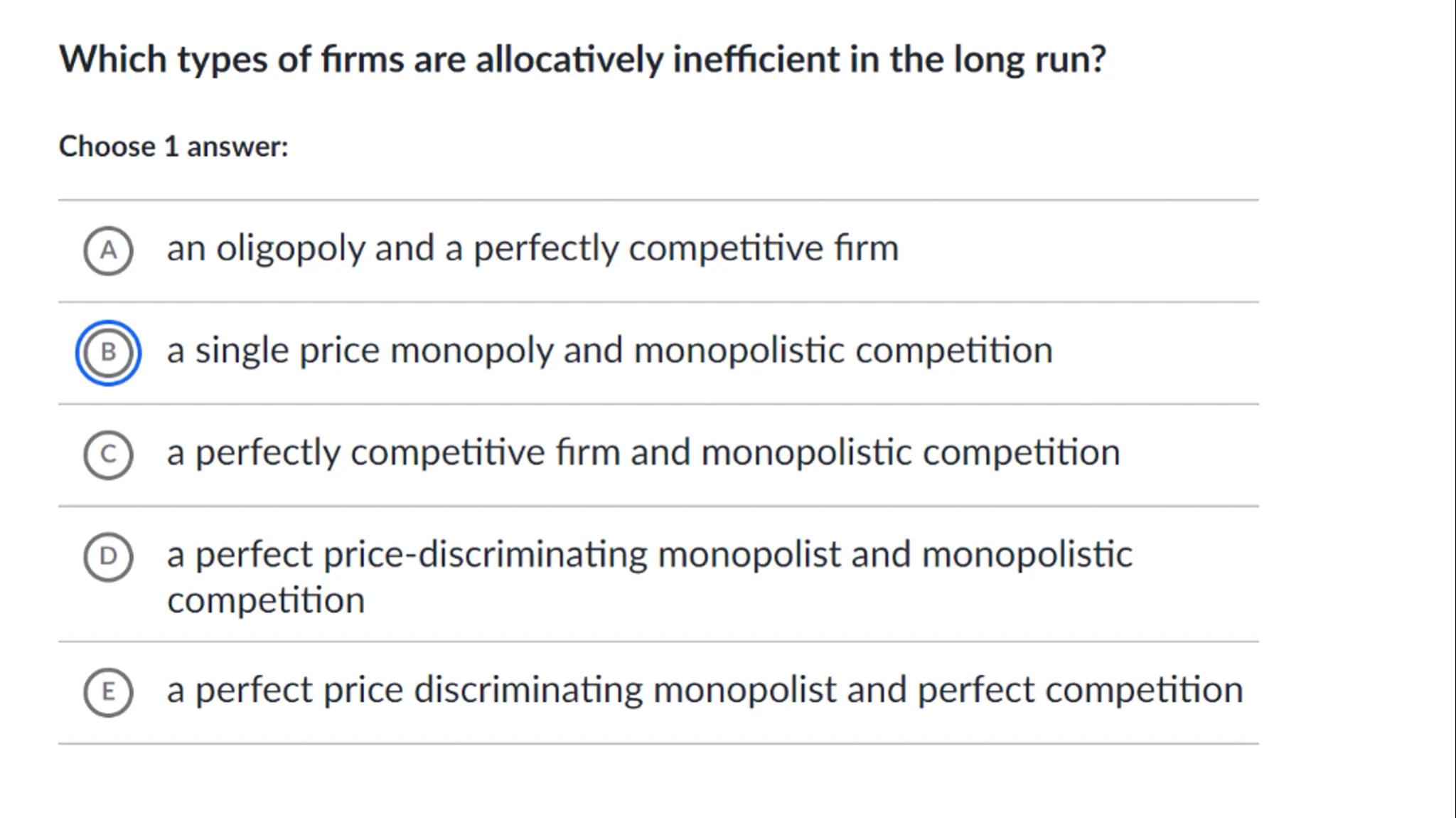
Sia

Question
Macroeconomics
Posted almost 2 years ago
Which types of firms are allocatively inefficient in the long run?
Choose 1 answer:
(A) an oligopoly and a perfectly competitive firm
(B) a single price monopoly and monopolistic competition
(C) a perfectly competitive firm and monopolistic competition
(D) a perfect price-discriminating monopolist and monopolistic competition
(E) a perfect price discriminating monopolist and perfect competition

Answer from Sia
Posted almost 2 years ago
Solution
a
Allocative Inefficiency: Allocative inefficiency occurs when the price of a good or service does not reflect the marginal cost (MC) of production, which is the cost of producing one additional unit. In a perfectly competitive market, price equals marginal cost (P = MC) in the long run, leading to allocative efficiency
b
Monopoly and Monopolistic Competition: In a single-price monopoly and monopolistic competition, firms have market power, which allows them to set prices above marginal cost (P > MC). This results in allocative inefficiency because the quantity of goods produced and consumed does not maximize total surplus
Answer
The types of firms that are allocatively inefficient in the long run are a single price monopoly and monopolistic competition.
Key Concept
Allocative Inefficiency in Market Structures
Explanation
Allocative inefficiency occurs in market structures where firms have the power to set prices above marginal cost, such as in a single price monopoly and monopolistic competition, leading to a misallocation of resources and a reduction in total surplus.
Not the question you are looking for? Ask here!
Enter question by text
Enter question by image
Unlock Smarter Learning with AskSia Super!
Join Super, our all-in-one AI solution that can greatly improve your learning efficiency.
30% higher accuracy than GPT-4o
Entire learning journey support
The most student-friendly features
Study Other Question